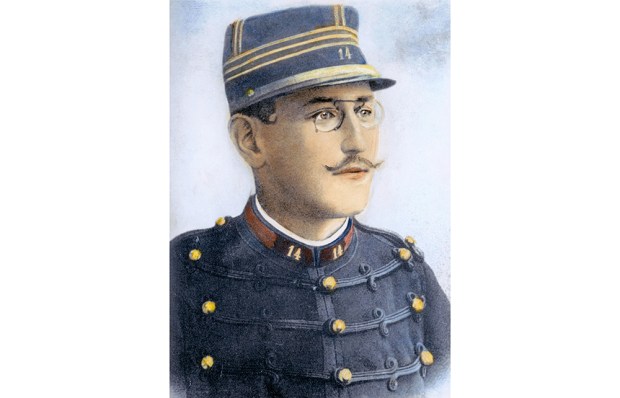If you were to glance only briefly at the title of the Irish poet Doireann Ní Ghríofa’s prose debut you might be forgiven for assuming that A Ghost in the Throat was a story about demonic possession — and you wouldn’t be entirely wrong. Demonic? No. Possession? Certainly.
This spectral, arresting and at times disorientating autofiction is, most simply, the story of an author and her muse. But it isn’t just a story. Its fusion of historical biography, memoir and literary criticism makes it an intoxicating experiment in genre while also a heady and sensitive read. And that seems to be Ní Ghríofa’s modus operandi. As she sets out on a quest to discover all she can about a poet who has influenced her since childhood (deciding that she will ‘donate [her] days to finding hers’), the journey begins with what she calls ‘an unscientific mishmash of daydream and fact’.
The woman in question is Eibhlín Dubh Ní Chonaill. In 1773 she was suddenly and violently made a widow. After her husband’s murder she composed a caoineadh, an Irish poem ‘to lament the dead’, which would be hailed by Peter Levi (Oxford professor of poetry 1984-9) as the ‘greatest poem written in these islands in the whole of the 18th century’. It is this poem, this poet and this history which possess Ní Ghríofa when she invites ‘the voice of another woman to haunt [her] throat a while’.
Her obsession sees her becoming a literary detective, rooting among archives and library books for any crumb of information about the life of a woman who ‘had been dead for centuries’. But her hunt — which is as much for her own voice as for that of her mysterious muse — must contend with her own domestic duties of changing nappies, hoovering and washing dishes. Even when she rushes to hospital, fearing for the life of her unborn child, it is her ‘tattered photocopy of the caoineadh’ that she flings into the car beside her. This is probably the most action-packed the book gets; but action is not what makes this elegiac story so captivating.
Ní Ghríofa’s lyrical prose loops back on itself through many recurring images and sounds (‘the liquid drop: blot, blot’); this is noticeably a poet’s first prose venture, and all the better for that. Most experimental literature — as good as it may be — fails the most important test: is it a page turner? A Ghost in the Throat passes with flying colours: no demonic presence necessary.
Got something to add? Join the discussion and comment below.
Get 10 issues for just $10
Subscribe to The Spectator Australia today for the next 10 magazine issues, plus full online access, for just $10.
You might disagree with half of it, but you’ll enjoy reading all of it. Try your first month for free, then just $2 a week for the remainder of your first year.














Comments
Don't miss out
Join the conversation with other Spectator Australia readers. Subscribe to leave a comment.
SUBSCRIBEAlready a subscriber? Log in